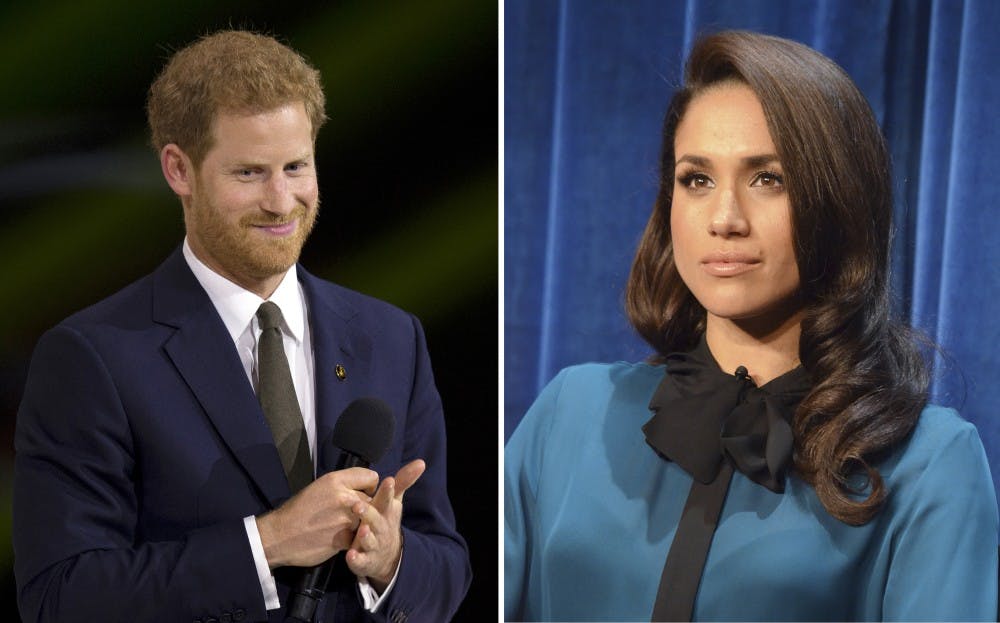Against the backdrop of the increasing prevalence of xenophobic and racially-charged rhetoric in the political sphere of the United Kingdom, the daily happenings of the royal family appear inconsequential. Since the watershed referendum vote to sever ties between the U.K. and the European Union, hate crimes against religious and ethnic minorities within Britain have reached their modern peak. In the cities of Gwent, Warwickshire, Kent and Nottinghamshire alone, the percentage of racially motivated violence increased by well over 50 percent in 2017. Amidst growing ethnic tensions, however, a glimmer of hope emerged with Prince Harry of Wales and Meghan Markle’s engagement announcement last November.
Well into the 21st century, Prince Harry’s engagement to a half-black, American divorcée should not be a bombshell event. Nonetheless, Meghan Markle’s accession to the ranks of the royals actually does have far-reaching historical and domestic implications for the U.K. The aging British monarchy has a problematic history of racism, helping to perpetuate the exclusion of people of color with its all-white line. A historical obsession with the purity of the royal line bolstered arguably the most prominent bastion of white supremacy in Western European political institutions. Markle’s breach of one of Britain’s oldest and most rigid institutions — despite her identity as a woman of color — marks a symbolic turning point in the history of the U.K.
Unsurprisingly, when news broke of Prince Harry and Markle’s relationship during their early phases of dating, social media and digital journalism alike exploded. Many of the responses — particularly from Twitter — were overwhelmingly positive and enthusiastically welcomed this new era of royal progressivism. Still, certain media responses capitalized on Markle’s race to paint her and her upbringing in a negative light. Daily Mail infamously described the duchess-to-be as “straight outta Compton,” criticizing her home city for its widespread gang violence while employing language with clear racial undertones. As evidenced by the online community’s obsession with Markle’s ethnic background, the couple’s recent engagement has brought forth explicit forms of racism in the media and the populace.
In the face of racist comments aimed at Markle in the past, Prince Harry has risen to the defense of his partner. In a statement issued by his communications secretary, the Prince defends Markle from the “wave of abuse and harassment” she has experienced since their relationship became public. Moreover, the statement goes on to condemn “the outright sexism and racism of social media trolls.” Prince Harry’s refusal to succumb to the regular media campaigns of racism and elitism launched at Markle signifies a small but meaningful act of leadership in British politics.
Historically, the U.K. and its monarchy have prevailed as global symbols of imperialism and white supremacy. Their advancement of the slave trade in the 17th and 18th centuries, along with the golden age of British imperialism in the 20th century, left a dark blotch on the history of the U.K. Generations of discrimination propagated by the royal family has led to the exclusion of racial and religious minorities. On May 19 of this year, Prince Harry and Meghan Markle will be married in St. George's Chapel at Windsor Castle, finally reflecting more accurately — even to a miniscule degree — the multi-ethnic makeup of the U.K. For centuries, the royal family has deeply entrenched itself into the social fabric of the nation, serving in modern times as a more symbolic entity than a political force. By projecting a positive message of inclusion and acceptance to British citizens, the traditionally rigid institution marks the dawn of a new era.
Charlotte Lawson is an opinion columnist for The Cavalier Daily. She can be reached at opinion@cavalierdaily.com.





